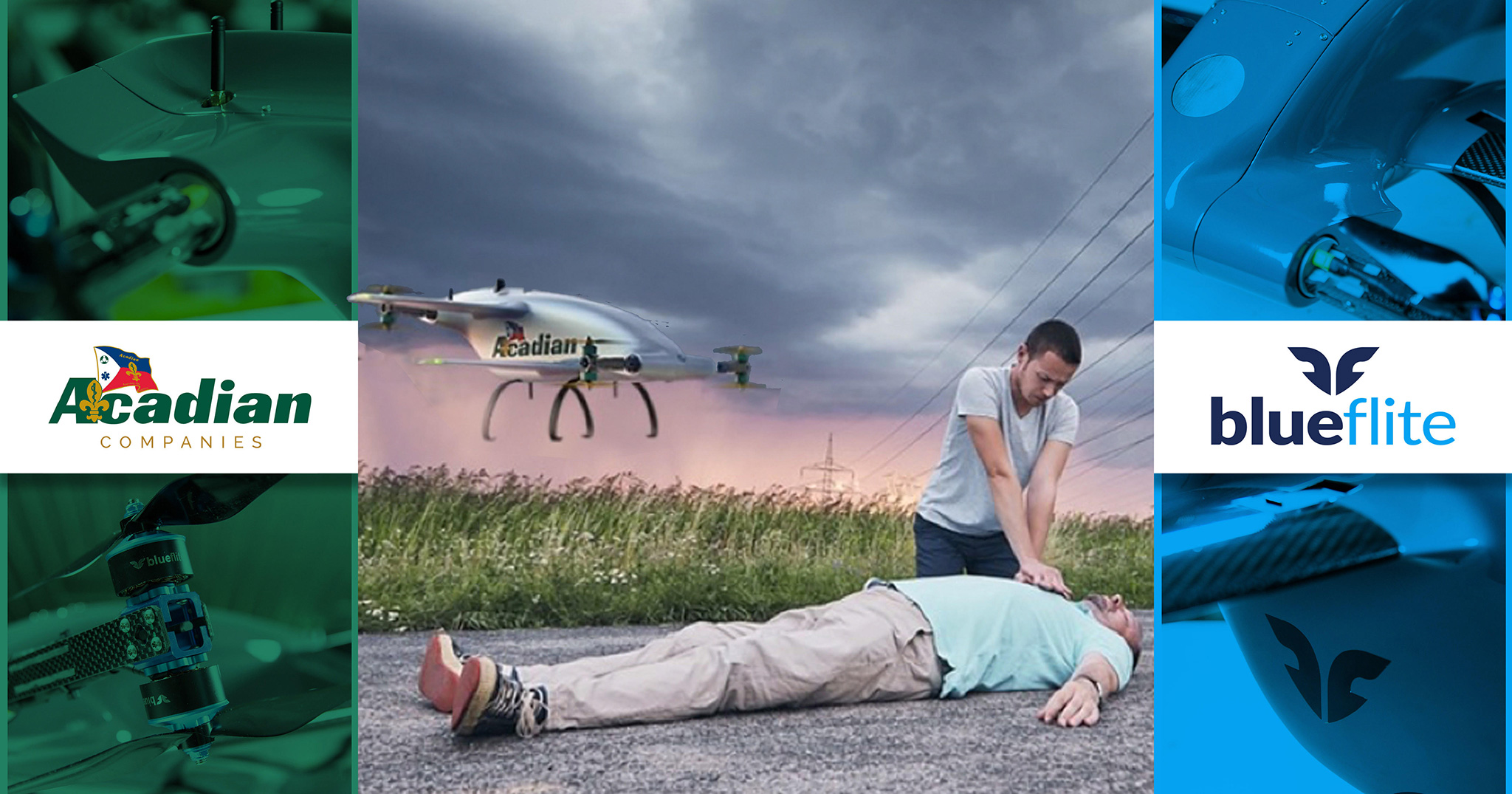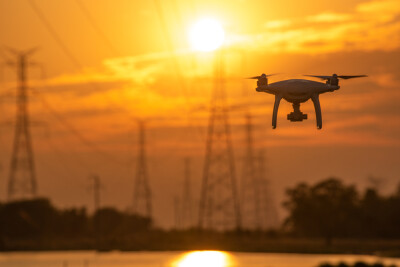Blueflite, a US logistics drone platform provider, and Acadian Ambulance, an employee-owned private ambulance service, have come together to improve deliveries of medical equipment and medicines using drones. With R&D support from Lafayette, Louisiana-based survey and engineering firm Fenstermaker, both companies want to develop a "first-of-its-kind, drone-based emergency response solution for lifesaving medical deliveries in the USA."
Some companies, like San Francisco-based Zipline, or Matternet, have been using drones for medical deliveries for a while now. However, it was only in 2020, with the COVID outbreak, that many companies and governments saw the real benefits of drone deliveries—including those of medical supplies. Valued at $181.1M in 2021, the global market for medical drones continues to expand significantly and is now on track to a value of $1282.6M by 2027.
In the healthcare industry, time is essential and can be a lifesaver. It's imperative to move as quickly and efficiently as possible when moving biomedical samples between hospitals or laboratories, or getting medical supplies (drugs, vaccines, and aids) to those in need, and drones can provide just that.
Founded in 2018, blueflite has developed a rugged, scalable, and market-ready solution for faster and more cost-effective drone deliveries. Designed and made in the US, the company's drones (Slate and Cobalt) feature an all-electrical design that include vertical take-off and landing capabilities, advanced maneuverability, and meet the rigorous demands of commercial operations. In addition to manufacturing drones, the company also provides four pieces of software:
- blueDigital, a cloud-based productivity tool
- blueControl, for mission planning, control, and vehicle monitoring
- bluePilot, an on-board autopilot
- blueBrain, a flight control system featuring Machine Learning that works in tandem with bluePilot
- blueDelivery, a smartphone app for users to place drone delivery orders.
"We selected the Blueflite platform for its advanced technology and capability to deliver lifesaving medical supplies safely and efficiently to those in need. This is the next step in the future of medical response, and we are excited to further development in conjunction with Blueflite and Fenstermaker," said Benjamin Swig, Director of Healthcare Innovation and Strategy at Acadian Ambulance.
As a small survey and mapping company in New Iberia, Louisiana, Fenstermaker's services integrate drone technology to deliver the most logical solutions for its client's projects and change the landscape of project documentation and management. "We've been on the cutting edge with drone technology since it was first introduced to the market," commented Charles Fenstermaker, President of Fenstermaker. "Having been in operation for over seventy years, we have the data, technology, professional network, and regional knowledge required to conduct, in conjunction with Acadian Ambulance and Blueflite, a full-scale R&D effort to ensure the success of this venture."
Acadian Ambulance's website features an interesting story about how, when it started in 1971, ambulances looked much different compared to today. Although it's clear that a drone-only future is still relatively in the distance, instead of a "current vs. old vehicle" comparison, we might end up comparing the "new vs. old medical system," where ambulances are no longer road vehicles but flying drones—either for transporting small medical supplies, or patients from one location to another. That's the future we're walking towards, just like we imagined in sci-fi movies 20 or more years ago.















Comments